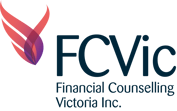Financial counsellors working with survivors of family violence know that there are multiple ways in which perpetrators can use debt to exercise power and control over an intimate partner even after a violent relationship breaks down.
Coercing, deceiving or pressuring an intimate partner to take on debt, either solely in her own name, or in joint names, is a recognised form of economic abuse. Economic abuse is a common form of family violence, with 15.7% of Australian women and 7.1% of men experiencing it in their lifetimes.
Researchers at Melbourne Law School have published an article drawing on the views of financial counsellors, consumer solicitors and other advocates on their experiences of assisting women with debt problems resulting from economic abuse.
The article is the result of a study involving focus groups with consumer advocates employed by Victorian community organisations including Consumer Action Law Centre, Good Shepherd Australia New Zealand and WIRE Women’s Information. All of these organisations have been involved in the Economic Abuse Reference Group, which seeks to ‘[influence] government and industry responses to the financial impacts of family violence’.
This study was carried out by Evgenia Bourova (Research Fellow), Professor Ian Ramsay and Associate Professor Paul Ali as part of their work on the Financial Hardship Project. This is a research project funded by a Discovery grant from the Australian Research Council.
According to consumer advocates taking part in the study, economic abuse can have devastating consequences for the long-term financial security of survivors of family violence. Women fleeing violent relationships frequently forego essentials such as food and heating in order to pay both their own and their former partner’s share of joint debts, and thus avoid having a default listing on their credit history.
Legal protections are in place to allow Australians in financial hardship to negotiate payment plans and other arrangements with banks, utility companies and other creditors. In theory, these protections can provide women with debt incurred in the context of economic abuse with a temporary reprieve from debt recovery.
However, as the study shows, family violence workers and other advocates require greater support in navigating a complex intersection of family law and consumer credit law to ensure that their clients can exercise their rights under these legal hardship protections.
The short-term solutions available through hardship programs are also of little use to many survivors of family violence, as they can only provide a temporary reprieve from repayments even in cases where the debt itself was taken out in circumstances involving pressure, deception or duress.
The research team is grateful to all of the financial counsellors who took part in this study. For more information on any aspect of the study, please contact Evgenia Bourova.
